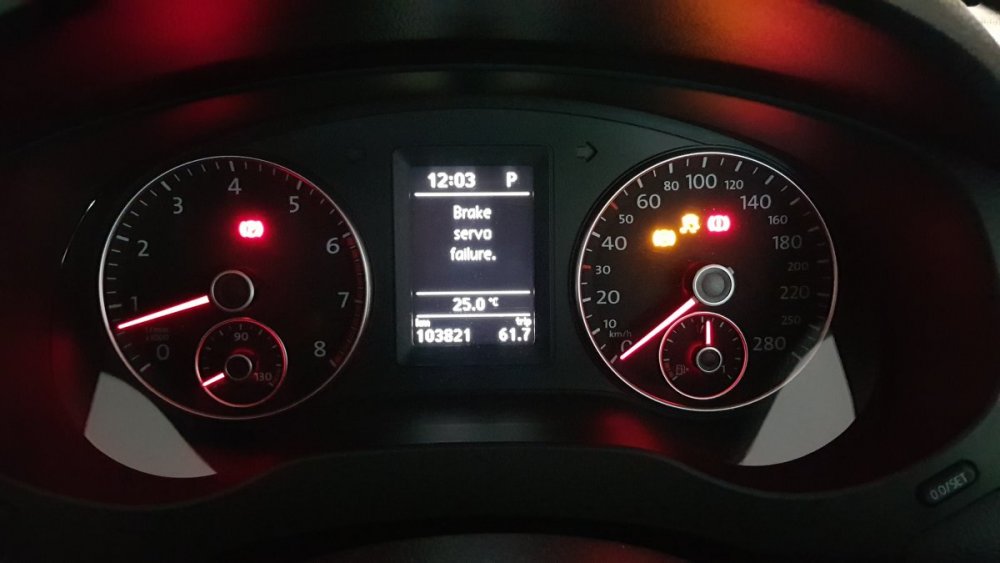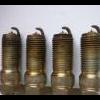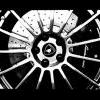Search the Community
Showing results for tags 'failure'.
-
Can Anyone VW car owners, advise if u had such experience code? The code came out but it goes away after some distance. But this had been coming back a few time already. As no error code when I drive to workshop. They can’t check for me!!! Don’t feel comfortable. Thanks
-
I just found this on youtube and want to share it to all. http://www.youtube.com/watch?v=KfqN_DDkppc I guess FD2 is the way to go...
-
My VW Jetta 2014 model recently have "brake servo failure" with 3 error signs shown (photo). Now this sign came out every time after engine starts. In march 2021 VW Singapore quoted me replacement of ABS/EDL Control Unit for $3,974, of course I refused to do so. Anyone can offer your solution?
-
Engine failure forces Air France A380 back to Abidjan. So within 3 days 3 airplane incidents with 1 involving a major air crash. - Engine failure on Air France A380 - Turkish Airway flight to New York severe turbulence, dozens injured includin 1 air stewardess with broken leg - Ethiopian Airlines Boeing 737 Max 8 crashed Personally i have phobia of taking airplanes but still take anyway but i am literally scared stiff whenever theres air turbulence, even the slightest vibration or shaky feeling can make me very uncomfortable. i am also unable to sleep through flights which can be a very bad experience esp long haul flights. any others here with same phobia of taking planes? or should i be same as dennis bergkamp the non flying dutchman just dont fly aha though i believe strongly that if its time to go, its time to go. say a prayer, hold the hands of your loved ones if youre flying with them, if not, try to send a text message out to them / call if thats even possible. https://www.channelnewsasia.com/news/world/engine-failure-forces-air-france-a380-back-to-abidjan-11329626?cid=fbcna&fbclid=IwAR3gvtygu42aM1aJgR8Eg5oqXYwmcwH1fxqm7xtdqDRUXvjlXgBEgbenPdw
- 8 replies
-
- 2
-

-
- airfrance
- engine failure
- (and 6 more)
-
Called up a battery rescue number from mycarform in September 2017. To change a battery in Suntec when my honda headlights forgot to off. The new battery brand was DRIVE. At that time the guy came in a conti OPEL van with his GF, to help me change the battery. I think I paid $160. Yes I know it's market rate for AMERON, not some lousy DRIVE brand battery. I did told that guy I want AMERON, but he said this is a GERMANY branded battery, just as good as AMERON. Fast forward to last week. Can't start my car. I know this time it was not due to headlights drain out the battery, because I did check the day before I left the car locked. So I thought I can jump start with another car battery. Hooked up the red/black cables to a fully charged battery. Still cannot start. In the end swopped out the DRIVE battery with a second hand AMERON battery. And the Honda car starts perfectly. One week later, still ok. I have a pulse charger(Ctek) to charge the DRIVE battery at home. For the past week, the charger is tick-tok-tick-tok trying to charge the battery. Even tilting the battery is all possible position it is still not able to charge. I don't know how a car battery can suddenly FAILED. Be careful with this DRIVE brand of lousy battery. I now only trust big brand battery. The second hand AMERON battery is already four years old, and is still strong and workable in my Honda.
- 36 replies
-
- 2
-

-
- battery drive
- fail
- (and 7 more)
-
Long article below. The press conference after the address was interesting. Reporters asked whether Barra was aware of the design lapse since she was once Head of Safety (oops) and she dodged the question. WARREN, Mich.— General Motors Co. 's chief executive vowed to upend the corporate culture responsible for what she denounced as a "pattern of incompetence and neglect" in the auto maker's 11-year failure to recall cars equipped with a defective ignition switch. The scathing indictment by Mary Barra, a GM veteran who inherited the recall crisis shortly after she became CEO in January, coincided with the release of a company-funded report that could deepen GM's legal vulnerability and scrutiny from regulators, prosecutors and lawmakers. The 315-page report by former U.S. Attorney Anton Valukas concluded that information about the faulty ignition switches, which could abruptly slip from the "on" position, stall vehicles and disable their air bags, bounced around an "astonishing number of committees" inside GM. That led to a "troubling disavowal of responsibility" and devastating consequences, Mr. Valukas concluded. So far, GM has attributed at least 54 crashes and 13 deaths to switch-related air bag failures. GM President Dan Ammann didn't rule out the possibility that the death toll could climb. In the report, Ms. Barra was cited for a description of what she called the "GM Nod," or meetings where participants appeared to nod in agreement that action should be taken, then did nothing. Another official invoked the "GM Salute," or crossing arms and pointing toward other employees to indicate that "responsibility belongs to someone else, not me," the report said. In a meeting Thursday morning with GM employees at the company's technical center here, the 52-year-old Ms. Barra tried to position the report as a defining moment in a new effort to transform the auto maker's management after decades of dysfunction. She claimed responsibility for fixing problems still entrenched after the company's bankruptcy and 30 years of similar crusades by predecessors. "We will accept responsibility for our mistakes, and we will do everything in our power to make sure this never happens again," she said. Ms. Barra promised to expand an overhaul of GM's product-development organization and legal department to make sure that information about safety problems doesn't get bottled up in "silos." As expected, the report exonerated the CEO, executives who report directly to her and the company's board of directors. Fifteen employees have been dismissed from GM because of misconduct or failure to respond properly as evidence of the ignition switch's defects mounted, Ms. Barra said. More than half of those officials were executives, and Ms. Barra said five other GM employees have been disciplined but remain with the company. Ms. Barra wouldn't identify the employees by name, except to confirm that two low-ranking engineers involved with the design of the defective switch were dismissed. Also fired were lawyers and officials responsible for safety and dealings with regulators, according to people familiar with the matter. The internal report was especially critical of one of the fired engineers, Raymond DeGiorgio, who approved the initial ignition-switch design in 2001 even though he knew it failed to meet GM's standards, the report said. After problems surfaced, Mr. DeGiorgio tweaked the design but told no one about the change and didn't assign a new part number to the switch, which might have alerted GM to the problems, the report concluded. In a statement, General Motors CEO Mary Barra discusses the lack of accountability and responsibility in the problems the automaker experienced with faulty ignition switches in some of its vehicles. 15 GM employees were fired as a result of the investigation. General Motors fired 15 people, most in senior roles, amid its probe over defective ignition switches. Its investigation found a "pattern of incompetence" but no evidence of a coverup. GM will also establish a victim compensation fund. Joe White joins MoneyBeat with details. Photo: Getty Images. Does General Motors CEO Mary Barra deserve applause for how she handled the company's failure to act for years after becoming aware of its deadly ignition switch problem? Vianovo Partner Matthew Miller joins Lunch Break's Tanya Rivero to discuss. As a result, the company's investigators were stumped for years. Mr. Valukas said GM officials were "misled" by Mr. DeGiorgio, whose name was cited more than 200 times in the report and its footnotes. The report is a big step in Ms. Barra's scramble to bring the recall crisis under control, and the findings fill in many of the blanks that she declined to answer when questioned by lawmakers in early April. She now faces an uphill battle to instill urgency and accountability throughout a sprawling company long known for marathon meetings, PowerPoint presentations and a maze of departments largely cut off from other parts of GM. GM still is wrestling with a Justice Department criminal investigation, Securities and Exchange Commission probe and civil lawsuits from deaths, injuries and economic losses allegedly tied to the ignition-switch problems. Congressional committees are investigating the company's handling of safety defects, and Ms. Barra is expected to testify again as early as this month.Sen. Richard Blumenthal (D., Conn.) said the internal report is "not only a window into GM's incompetence but also a failure to come clean and acknowledge full responsibility." House Energy and Commerce Committee Chairman Fred Upton (R., Mich.) said GM and federal officials "must continue to cooperate and provide us honest answers as we work to determine what went wrong, if there are gaps in the law that allowed the system to fail, and what legislative remedies may be necessary." Plaintiffs' lawyers saw the report as ammunition to reopen wrongful-death lawsuits previously settled by the company. "It is critical that the civil cases move forward so that the American public may learn the whole truth, not just the truth GM chooses to disclose," said Lance Cooper, a lawyer representing the family of crash victim Brooke Melton. Ms. Barra and Mr. Ammann reiterated that GM will move ahead with an effort to compensate victims of crashes linked to the defect, using a fund set up and run by compensation expert Kenneth Feinberg. He also will decide how many deaths can be tied to the ignition-switch defect. "I am gathering some preliminary ideas, I will talk with plaintiff attorneys, the company and others and devise a plan within the next few weeks," Mr. Feinberg said Thursday. Separately, GM Chairman Tim Solso said the board had "retained independent counsel to advise us with respect to this situation and governance and risk management issues. We will establish a stand-alone risk committee to assist in overseeing these efforts." The report by Mr. Valukas used "failure" or similar words more than 150 times. Information about problems with Chevrolet Cobalt ignition switches was shuffled among an "astonishing number of committees." GM engineers investigating complaints about air bag failures failed to locate key documents in GM's own data systems. When senior executives in the engineering and quality departments realized in late 2013 that a recall might be necessary, they waited weeks to act while sending subordinates to find more data. Engineers and executives failed to recognize that a car's sudden shut-off was a safety concern or that turning the ignition switch to the "off" position would cut power to air bags, Mr. Valukas said. Employees saw the switch problem as a "customer convenience" issue, not a safety defect. "Had GM personnel connected the dots and understood how their own cars were built, they might have addressed the safety defect before injuries and fatalities occurred," the internal report concluded. From 2011 to 2013, GM engineers assigned to figure out why air bags were failing on the Cobalt and other vehicles bogged down in a search for "root causes" and an inconclusive hunt for an "ultimate solution." Ms. Barra refused to delve into the moves by Mr. DeGiorgio, the fired GM engineer. The report didn't address why Mr. DeGiorgio changed the ignition switch's design. "To this day, in informal interviews and under oath, DeGiorgio claims not to remember authorizing the change to the ignition switch or his decision, at the same time, not to change the switch's part number," the report said.
-
- general motors
- fire
-
(and 3 more)
Tagged with:
-
Good s h i t here so be patient and keep reading to the end. If you're already as successful as you want to be, both personally and professionally, congratulations! Here's the not-so-good news: All you are likely to get from this article is a semi entertaining tale about a guy who failed his way to success. But you might also notice some familiar patterns in my story that will give you confirmation (or confirmation bias) that your own success wasn't entirely luck. If you're just starting your journey toward success—however you define it—or you're wondering what you've been doing wrong until now, you might find some novel ideas here. Maybe the combination of what you know plus what I think I know will be enough to keep you out of the wood chipper. Let me start with some tips on what not to do. Beware of advice about successful people and their methods. For starters, no two situations are alike. Your dreams of creating a dry-cleaning empire won't be helped by knowing that Thomas Edison liked to take naps. Secondly, biographers never have access to the internal thoughts of successful people. If a biographer says Henry Ford invented the assembly line to impress women, that's probably a guess. But the most dangerous case of all is when successful people directly give advice. For example, you often hear them say that you should "follow your passion." That sounds perfectly reasonable the first time you hear it. Passion will presumably give you high energy, high resistance to rejection and high determination. Passionate people are more persuasive, too. Those are all good things, right? Here's the counterargument: When I was a commercial loan officer for a large bank, my boss taught us that you should never make a loan to someone who is following his passion. For example, you don't want to give money to a sports enthusiast who is starting a sports store to pursue his passion for all things sporty. That guy is a bad bet, passion and all. He's in business for the wrong reason. My boss, who had been a commercial lender for over 30 years, said that the best loan customer is someone who has no passion whatsoever, just a desire to work hard at something that looks good on a spreadsheet. Maybe the loan customer wants to start a dry-cleaning store or invest in a fast-food franchise—boring stuff. That's the person you bet on. You want the grinder, not the guy who loves his job. For most people, it's easy to be passionate about things that are working out, and that distorts our impression of the importance of passion. I've been involved in several dozen business ventures over the course of my life, and each one made me excited at the start. You might even call it passion. The ones that didn't work out—and that would be most of them—slowly drained my passion as they failed. The few that worked became more exciting as they succeeded. For example, when I invested in a restaurant with an operating partner, my passion was sky high. And on day one, when there was a line of customers down the block, I was even more passionate. In later years, as the business got pummeled, my passion evolved into frustration and annoyance. On the other hand, Dilbert started out as just one of many get-rich schemes I was willing to try. When it started to look as if it might be a success, my passion for cartooning increased because I realized it could be my golden ticket. In hindsight, it looks as if the projects that I was most passionate about were also the ones that worked. But objectively, my passion level moved with my success. Success caused passion more than passion caused success. So forget about passion. And while you're at it, forget about goals, too. Just after college, I took my first airplane trip, destination California, in search of a job. I was seated next to a businessman who was probably in his early 60s. I suppose I looked like an odd duck with my serious demeanor, bad haircut and cheap suit, clearly out of my element. I asked what he did for a living, and he told me he was the CEO of a company that made screws. He offered me some career advice. He said that every time he got a new job, he immediately started looking for a better one. For him, job seeking was not something one did when necessary. It was a continuing process. This makes perfect sense if you do the math. Chances are that the best job for you won't become available at precisely the time you declare yourself ready. Your best bet, he explained, was to always be looking for a better deal. The better deal has its own schedule. I believe the way he explained it is that your job is not your job; your job is to find a better job. This was my first exposure to the idea that one should have a system instead of a goal. The system was to continually look for better options. Throughout my career I've had my antennae up, looking for examples of people who use systems as opposed to goals. In most cases, as far as I can tell, the people who use systems do better. The systems-driven people have found a way to look at the familiar in new and more useful ways. To put it bluntly, goals are for losers. That's literally true most of the time. For example, if your goal is to lose 10 pounds, you will spend every moment until you reach the goal—if you reach it at all—feeling as if you were short of your goal. In other words, goal-oriented people exist in a state of nearly continuous failure that they hope will be temporary. If you achieve your goal, you celebrate and feel terrific, but only until you realize that you just lost the thing that gave you purpose and direction. Your options are to feel empty and useless, perhaps enjoying the spoils of your success until they bore you, or to set new goals and re-enter the cycle of permanent presuccess failure. I have a friend who is a gifted salesman. He could have sold anything, from houses to toasters. The field he chose (which I won't reveal because he wouldn't appreciate the sudden flood of competition) allows him to sell a service that almost always auto-renews. In other words, he can sell his service once and enjoy ongoing commissions until the customer dies or goes out of business. His biggest problem in life is that he keeps trading his boat for a larger one, and that's a lot of work. Observers call him lucky. What I see is a man who accurately identified his skill set and chose a system that vastly increased his odds of getting "lucky." In fact, his system is so solid that it could withstand quite a bit of bad luck without buckling. How much passion does this fellow have for his chosen field? Answer: zero. What he has is a spectacular system, and that beats passion every time. As for my own system, when I graduated from college, I outlined my entrepreneurial plan. The idea was to create something that had value and—this next part is the key—I wanted the product to be something that was easy to reproduce in unlimited quantities. I didn't want to sell my time, at least not directly, because that model has an upward limit. And I didn't want to build my own automobile factory, for example, because cars are not easy to reproduce. I wanted to create, invent, write, or otherwise concoct something widely desired that would be easy to reproduce. My system of creating something the public wants and reproducing it in large quantities nearly guaranteed a string of failures. By design, all of my efforts were long shots. Had I been goal-oriented instead of system-oriented, I imagine I would have given up after the first several failures. It would have felt like banging my head against a brick wall. But being systems-oriented, I felt myself growing more capable every day, no matter the fate of the project that I happened to be working on. And every day during those years I woke up with the same thought, literally, as I rubbed the sleep from my eyes and slapped the alarm clock off. Today's the day. If you drill down on any success story, you always discover that luck was a huge part of it. You can't control luck, but you can move from a game with bad odds to one with better odds. You can make it easier for luck to find you. The most useful thing you can do is stay in the game. If your current get-rich project fails, take what you learned and try something else. Keep repeating until something lucky happens. The universe has plenty of luck to go around; you just need to keep your hand raised until it's your turn. It helps to see failure as a road and not a wall. I'm an optimist by nature, or perhaps by upbringing—it's hard to know where one leaves off and the other begins—but whatever the cause, I've long seen failure as a tool, not an outcome. I believe that viewing the world in that way can be useful for you too. Nietzsche famously said, "What doesn't kill us makes us stronger." It sounds clever, but it's a loser philosophy. I don't want my failures to simply make me stronger, which I interpret as making me better able to survive future challenges. (To be fair to Nietzsche, he probably meant the word "stronger" to include anything that makes you more capable. I'd ask him to clarify, but ironically he ran out of things that didn't kill him.) Becoming stronger is obviously a good thing, but it's only barely optimistic. I do want my failures to make me stronger, of course, but I also want to become smarter, more talented, better networked, healthier and more energized. If I find a cow turd on my front steps, I'm not satisfied knowing that I'll be mentally prepared to find some future cow turd. I want to shovel that turd onto my garden and hope the cow returns every week so I never have to buy fertilizer again. Failure is a resource that can be managed. Before launching Dilbert, and after, I failed at a long series of day jobs and entrepreneurial adventures. Here are just a few of the worst ones. I include them because successful people generally gloss over their most aromatic failures, and it leaves the impression that they have some magic you don't. When you're done reading this list, you won't have that delusion about me, and that's the point. Success is entirely accessible, even if you happen to be a huge screw-up 95% of the time. My failures: Velcro Rosin Bag Invention: In the 1970s, tennis players sometimes used rosin bags to keep their racket hands less sweaty. In college, I built a prototype of a rosin bag that attached to a Velcro strip on tennis shorts so it would always be available when needed. My lawyer told me it wasn't patentworthy because it was simply a combination of two existing products. I approached some sporting-goods companies and got nothing but form-letter rejections. I dropped the idea. But in the process I learned a valuable lesson: Good ideas have no value because the world already has too many of them. The market rewards execution, not ideas. From that point on, I concentrated on ideas that I could execute. I was already failing toward success, but I didn't yet know it. Gopher Offer: During my banking career, in my late 20s, I caught the attention of a senior vice president at the bank. Apparently my b.s. skills in meetings were impressive. He offered me a job as his gopher/assistant with the vague assurance that I would meet important executives during the normal course of my work, which would make it easy for him to strap a rocket to my backside—as the saying roughly went—and launch me up the corporate ladder. On the downside, the challenge would be to survive his less-than-polite management style and do his bidding for a few years. I declined his offer because I was already managing a small group of people, so becoming a gopher seemed like a step backward. I believe the senior vice president's exact characterization of my decision was "[expletive] STUPID!!!" He hired one of my co-workers for the job instead, and in a few years that fellow became one of the youngest vice presidents in the bank's history. I worked for Crocker National Bank in San Francisco for about eight years, starting at the very bottom and working my way up to lower management. During the course of my banking career, and in line with my strategy of learning as much as I could about the ways of business, I gained an extraordinarily good overview of banking, finance, technology, contracts, management and a dozen other useful skills. I wouldn't have done it any differently. Webvan: In the dot-com era, a startup called Webvan promised to revolutionize grocery delivery. You could order grocery-store items over the Internet, and one of Webvan's trucks would load your order at the company's modern distribution hub and set out to service all the customers in your area. I figured Webvan would do for groceries what Amazon had done for books. It was a rare opportunity to get in on the ground floor. I bought a bunch of Webvan stock and felt good about myself. When the stock plunged, I bought some more. I repeated that process several times, each time licking my lips as I acquired ever-larger blocks of the stock at prices I knew to be a steal. When the company announced that it had achieved positive cash flow at one of its several hubs, I knew that I was onto something. If it worked in one hub, the model was proved, and it would surely work at others. I bought more stock. Now I owned approximately, well, a boatload. A few weeks later, Webvan went out of business. Investing in Webvan wasn't the dumbest thing I've ever done, but it's a contender. The loss wasn't enough to change my lifestyle. But boy, did it sting psychologically. In my partial defense, I knew it was a gamble, not an investment per se. What I learned from that experience is that there is no such thing as useful information that comes from a company's management. Now I diversify and let the lying get smoothed out by all the other variables in my investments. These failures are just a sampling. I'm delighted to admit that I've failed at more challenges than anyone I know. As for you, I'd like to think that reading this will set you on the path of your own magnificent screw-ups and cavernous disappointments. You're welcome! And if I forgot to mention it earlier, that's exactly where you want to be: steeped to your eyebrows in failure. It's a good place to be because failure is where success likes to hide in plain sight. Everything you want out of life is in that huge, bubbling vat of failure. The trick is to get the good stuff out.
-
My friend is telling me about how the pump fail to auto stop when he is filling up petrol causing the petrol to overfill. He thinks it is a problem with his car. I think its the problem with the nozzle at the pump. It had only happened once and after that, he only fills to around 80% based on his estimation. Can someone shed some light on this? Car in question is a Nissan Latio.
-
It seems that neither is there a perfect automaker or a perfect car. As the saying goes, "Nobody is perfect". You see, even such a huge and highly reputable automaker as Toyota can sometime overlook things while manufacturing its cars. The Japanese automaker has made an announcement in which it states its plan to recall 185,000 cars in total globally. Yes, that means that some of the Toyota cars on our shores will be affected by the recall as well. The recall is said to involve the Toyota Yaris (also known as the Vitz in some regions) from the 2010 to 2012 model years. In addition to those, the Ractis and Verso-S from the 2010 to 2011 model years will also be recalled. It is said that this global recall is due to a power steering failure. Toyota mentions that in case water happens to reach the inside of the power steering module, a short circuit could take place and the power steering will fail, forcing the driver to give more efforts while trying to turn the steering wheel. The Japanese automaker also mentions that when the failure emerges, the cars in question will switch on the Electronic Power Steering warning indicator as well as give out a buzzing sound. The recall affects 130,000 Toyota cars in Japan itself, 22,450 cars in Europe, 74 cars in the U.S., and the remaining 32476 cars in other parts of the world. So, if you own a Toyota, prepare yourself for the recall as the Japanese automaker will mail you (besides other Toyota owners, of course) and your dealer will be more than happy (well, they should, anyway) to replace your power steering module. While most automakers will normally recall their cars due to some safety issues, it's nice to see that Toyota recalls its cars due to some issues that are more likely comfort-oriented, as a power steering system is not absolutely needed to drive a car. You see, in the old days, cars didn't have this particular feature at all. But of course, most of us will feel like something's missing if we drive a car without a power steering feature these days.
-
Dear all, a few days ago, my reverse sensor malfunctioned. Whenever I change to the reverse gear, the sensor will start to sound whether or not there is actually anything behind the car. Intermittently, the reverse sensor will work properly but most of the time it does not. This problem actually started around the time when there was heavy rain all around the island (it did not get flooded) but I'm not sure if the 2 are linked. Today, I went down to C&C and was told that there was a $180 charge because the warranty on accessories is only for 1 year (Car is slightly more than 2 years old) so I was wondering if there were other places that I could get the sensor fixed. The service personnel only did a cursory check (he put the car in reverse mode) and he said that I would most likely have to change the reverse sensor because of some magnetic fault. 1. Could the fault be with a shorted out wire instead of the reverse sensor? 2. Can someone recommend me a shop I can go to to fix this problem for less than $180? The car in question is a Lancer EX. Thanks.
-
Is it a traffic offence if the cars fail to signal before changing lane and cause a hazard to other road users? I noticed it's getting more rampant and it's a vicious cycle. If we have videos of such acts, who can we report to?
-
In one of the bloody moods again....... Just thinking abt life and the direction, sustenance and other issues.....and thought if I was a failure in life? Not that I am in desperation or wat.....all seems ok, but somehow, an empty feeling. Makes me wonder if this rat-race is making me think this way too........hmmph... Maybe see MIW good life, make me depressed comments?
-
SEOUL (Reuters) - North Korea's much hyped long-range rocket launch on Friday ended in apparent failure, South Korean officials said, dealing a blow to the prestige of the reclusive and impoverished state that defied international pressure to push ahead with the plan. North Korea said it wanted the Unha-3 rocket to put a weather satellite into orbit, although critics believed it was designed to enhance the capacity of North Korea to design a ballistic missile deliver a nuclear warhead capable of hitting the continental United States. A spokesman for the Defence Ministry in Seoul told journalists that the rocket had broken up and crashed into the sea a few minutes after launch. Officials from Japan confirmed the mission had failed, while ABC News cited U.S. officials saying it had failed, although there was no immmediate indication of where it fell. The rocket's flight was set to take it over a sea separating the Korean peninsula, with an eventual launch of a third stage of the rocket in seas near the Philippines that would have put the satellite into orbit. This was North Korea's second consecutive failure to get a satellite into orbit, although it claimed success with a 2009 launch and there was no comment on the launch from North Korea's official media. The Unha-3 rocket took off from a new launch site on the west coast of North Korea, near the Chinese border. The launch had been timed to coincide with the 100th birthday celebrations of the isolated and impoverished state's founder, Kim Il-sung, and came after a food aid deal with the United States had hinted at an easing of tensions on the world's most militarised border. Source : http://sg.news.yahoo.com/north-korea-launc...-231525748.html
-
Do you think so? I mean I downloaded it and never got a true notification and I see what seemed to be prank notifications. All my friends including I have uninstalled it.
-
Honda recalled more than 35,000 Civic hybrids in the United States recently to fix a problem with the electrical system that could cause the headlights to turn off or the engine to stall. Honda Motor Co. told the US government its recall would cover 2006-2007 model year Civic hybrids. The company said the voltage converter that relays power from the motor assist system to the vehicle
- 2 comments
-
- civic
- civic hybrid
-
(and 3 more)
Tagged with:
-
Martin Whitmarsh has confirmed that a failed wheel rim caused Lewis Hamilton to crash on the penultimate lap of last weekend's Spanish grand prix. Shortly after the Briton's sudden tyre deflation, the McLaren team boss speculated that "debris" rather than an actual tyre problem probably caused the accident. Bridgestone's initial analysis was similar, but it did not stop some pundits from hinting that Hamilton's aggressive driving style might have been a contributing factor. But the damaged parts were returned to Woking for analysis on Monday, and Whitmarsh confirmed on Tuesday that a wheel rim failure looks the likely cause. "The rim failure is being investigated," he told reporters during a teleconference. "It could be debris related, it could be an issue of deflection, or it could be a lack of tightness in the wheel nut, which allowed some flexing. "What we know is the rim failed, probably human error somewhere in the process caused it, and that led to a deflation and the accident," Whitmarsh added. Source: GMM
-
Porsche and the National Highway Traffic Safety Administration are issuing a recall for the 2010 Panamera for a potential seat belt defect that could leave the driver unprotected in the event of a crash. NHTSA says the defect can occur when either front seat is put in an "extreme position," which could lead to the seat belt mount being detached from the anchoring mechanism while the belt is fastened or opened. The post-jump NHTSA release doesn't explain what an "extreme position" is, though we're guessing that the safety administration is referring to a seat that is either very close to or very far away from the dash (see UPDATE below). But while we don't know which seat positions could cause the problem, we do know that the result could be serious. NHTSA says that, in the event of a crash, the seat belt may not adequately protect the front seat occupant. Th agency's release states that there are up to 3,176 units affected by the safety action. Panamera owners (congratulations!) can take their vehicle to the nearest Porsche dealer, where an additional locking element will be installed onto the belt anchoring system to correct the issue. Hit the jump to read over the official press release. *UPDATE: Porsche spokesman Gary Fong tells Autoblog: "The company has discovered that in extreme forward front seat positions the front safety belts do not meet our strict safety standards. To assure the front belts works properly in all possible positions, Porsche will add an additional element to the anchoring system. The repair takes about 15 minutes and will be done free of charge. No injuries or fatalities have been associated with this recall."
-
Hi bros, Need help. My Maxtor HDD is failing and I am not able to copy files from my Maxtor HDD to another external HDD as it says "Windows Delayed Writing Failure". I was trying to backup and it failed. How do I save my files as it contains all my work? Pls advise.
-
In the driving test? I see many others still stop way after the stop line and protruding in the ped crossing already.
-
*Grumbles* Yeap, that happened to my 4mth old Demio. Was on the TPE from Woodlands to Siglap when it happened. Anyway I figured that I should make a mention of the symptoms just in-case this happens to anyone else. Please note that your car is still 100% driveable (imagine you're driving an AE86 ), just make sure you exercise due caution. If you have electric power steering (EPS) or Variable Assist Steering (VAS) 1) The steering wheel with the exclamation mark will come on. 2) The steering will become heavy since the EPS and VAS cannot tell what speed you are at and gives minimal assistance (please remember that it will be easier to turn if the car is in motion). The generic symptoms 1) ABS light will come on (The ABS computer will not be able to tell if the wheels are locking up as there is no proper speed reading and thus will not work). 2) The "check engine" light will come on as the ECU will detect a malfunction in its data logging. 3) The exclamation mark (fault detected) light will come on. 3) The speedo will stop working along with the odometer, trip meter(s), and fuel consumption computer (if any). 4) Automatic/self-shifting manual cars may not shift as well as normal. I'm hoping its just loose wiring, however the good news is that my warranty workshop (outsourced) doesn't care. They said "bring it in whenever you want" as every fault in the first year they're charging to Mazda Japan. 2nd and 3rd year onwards its their cost, but they also said its alright as the amount of faulty vehicles vs what my PI pays them means they still make money. Here are two pics to show you what my dash looks like with the fault:


















